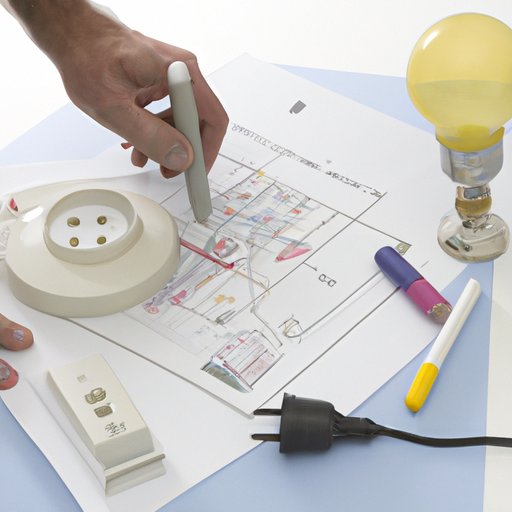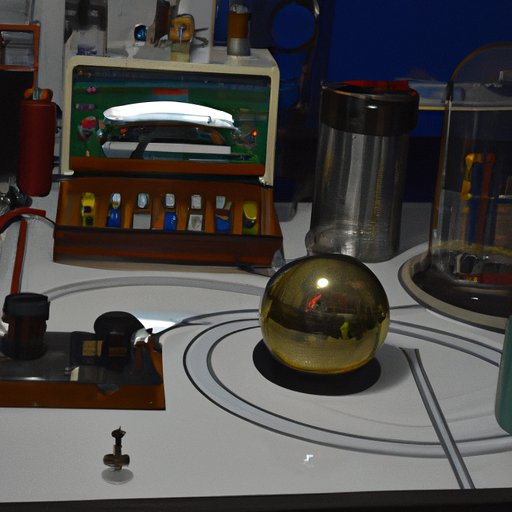Introduction
Electricity is one of the most important elements of modern life, powering everything from our phones to our homes. But what exactly is electricity in science? In the simplest terms, electricity is a form of energy created by the movement of charged particles. This article will explore the science behind electricity, including the basics of electrical current, voltage, resistance, and electromagnetism, as well as its role in everyday life, applications and uses, and its development over time.

Understanding How Electricity Works in Simple Terms
The science of electricity begins with a basic understanding of electrical current. Electrical current is the flow of electrons through a conductor such as a wire. The rate of flow, or current, is measured in amperes (amps). Voltage, or potential difference, is the force that pushes the electrons through the conductor. It is measured in volts. Resistance is the opposition to the flow of electrons and is measured in ohms. Ohm’s law states that the current flowing through a conductor is directly proportional to the voltage applied to it and inversely proportional to the resistance of the conductor.
Electromagnetism is the force that allows electricity to move. Electromagnetic fields are created when an electric charge moves, creating an invisible force field around it. This force field can be used to generate magnetic fields, which is how electricity is able to power motors and other devices.

Examining the Role of Electricity in Everyday Life
Electricity plays an essential role in everyday life, powering the devices we use on a daily basis. From lights and computers to refrigerators and air conditioners, electricity is at the heart of many of the devices we rely on. Of course, electricity also powers our homes and businesses, providing a reliable source of energy for heating, cooling, and lighting.

Investigating the Applications and Uses of Electric Power
Electricity has a wide range of applications and uses. In industry, electricity is used to power machines, run production processes, and provide lighting and ventilation. In addition, electricity is used in transportation, powering trains, planes, and automobiles. Renewable energy sources, such as solar and wind power, are becoming increasingly popular as they offer a clean, sustainable alternative to traditional fossil fuels.
Energy efficiency is another important aspect of electricity. By using energy-efficient appliances and investing in renewable energy sources, households and businesses can reduce their carbon footprint while saving money on their energy bills.
Investigating the History and Development of Electrical Technology
The history of electricity dates back thousands of years, with early discoveries made by ancient civilizations. However, it was not until the 19th century that electricity began to be understood and harnessed for practical purposes. Pioneers such as Michael Faraday and Nikola Tesla helped to further our understanding of electricity and lay the groundwork for modern electrical technology.
Since then, electrical technology has come a long way. Advances in electronics, computing, and telecommunications have revolutionized the way we live and work. Today, electricity is an integral part of our lives, powering everything from our phones to our homes.
Conclusion
Electricity is an essential element of modern life, powering our homes, businesses, and the devices we use on a daily basis. Its science is complex but can be understood in simple terms, and its applications and uses are vast. From industrial uses to renewable energy sources, electricity offers a range of benefits to society. Finally, its history and development over time demonstrate the incredible potential of electrical technology.
In conclusion, exploring the science behind electricity reveals a fascinating world of possibilities and potential. By understanding its fundamentals and investigating its applications and uses, we can continue to benefit from the incredible power of electricity.
(Note: Is this article not meeting your expectations? Do you have knowledge or insights to share? Unlock new opportunities and expand your reach by joining our authors team. Click Registration to join us and share your expertise with our readers.)
